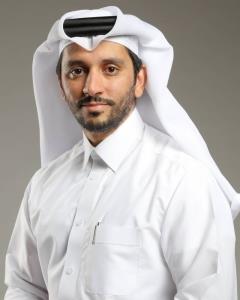(MENAFN- Gulf Times) A return to realism in the energy markets after the price shock of the Ukraine war, and exaggerated ideas about switching from fossil fuels, was welcomed at the recent Qatar Economic Forum.
The Qatar Economic Forum, held on May 23-25 at the Katara Towers in Lusail, hosted speakers and delegates from around the world, including senior government ministers, heads of leading international institutions including the IMF, and CEOs of major companies. It was opened by His Highness the Amir Sheikh Tamim bin Hamad al-Thani.
The first day hosted a session discussing the outlook for the energy sector, featuring the energy ministers of Saudi Arabia, Qatar, and Iraq. The comments from Qatar and Saudi ministers, the largest producers of respectively of gas and oil were highly significant.
Under-investment in oil and gas has become a serious issue, HE Saad bin Sherida al-Kaabi, Qatar's Minister of State for Energy Affairs, told the forum, but 'reality is kicking in'. He welcomed the recognition of the importance of energy security in the recent communique by the G7 group of wealthy nations following their summit in Hiroshima, Japan.
'We think there is going to be a big shortage of gas in the future, predominantly due to the energy transition push that is very aggressive.
'If you look at economic stability and environmental responsibility they are not mutually exclusive. You have to have both. And if you push some countries to doing that [rapid transition], you ruin their economies. That doesn't help humanity in general. If you look at the future, whether it's gas or oil, there is going to be a shortage due to the decade-long lack of investment, due to this push for the transition.
'I'm thrilled actually, that finally the G7, in their final communique, have said that we need more energy to be supplied to the world. We've been saying this for the last ten years.'
Europe was saved from a severe energy crisis by a relatively mild northern hemisphere winter in 2022-23 and a wider slowdown in the global economy. If economic activity picks up around the world, and the next winter is colder, the worst could be yet to come, he advised.
The Minister highlighted a misleading belief that a move to net-zero would mean the eventual end of the oil and gas industry. There will need to be a mix of energy sources for stability; moreover oil has many uses that are not to do with either transport propulsion or generating electricity, such as providing raw materials for a range of products including plastic components and cosmetics.
'You need a mix of all energy sources, and people need to realize that you need this mix. You need oil, you need gas, you need renewables. People talk about renewables as if it's a fix-all. If you look at renewables you can generate electricity from wind and solar. But you can't manufacture plastics.'
There is growing awareness that energy security is critical, he reported. 'Reality is kicking in.'
He drew attention to Qatar's significant investment in expanding liquid natural gas (LNG) supplies, with capacity increasing from 77mn tonnes per year to 126mn tons this decade. 'It's on track, all the contracts have been awarded,' the Minister told the Forum.
The Minister of Energy for Saudi Arabia, Prince Abdulaziz bin Salman al-Saud, told the same meeting at the Forum that the energy transition is not like 'turning a valve'. It requires time, investment, and certainty for investors. 'We have a huge certainty gap. That's the real picture.' There is a need for long-term strategic policy-making on energy, with a clear policy.
The Saudi minister referred to the example of hydrogen, a cleaner fuel that has received considerable investment, but with limited uptake. 'Where is the price of hydrogen today?' He said there is no clear policy of the future energy mix, or incentives to buy hydrogen at a certain price.
He also warned short-sellers in the oil market to 'watch out', and argued that the role of Opec was a stabilising one. Inaccurate market projections from the International Energy Agency have not helped, and were a significant cause of volatility in 2022, he said.
Opec has announced production cuts this year to limit falls in the price of oil. 'Over the past six-to-seven months we have proven to be a responsible regulatory institution,' he said.
These comments solidify the understanding that energy security requires cooperation between both producing and consuming countries, given that the importance of fossil fuels will remain for the foreseeable future. The author is a Qatari banker, with many years of experience in the banking sector in senior positions.
MENAFN30052023000067011011ID1106356605
Legal Disclaimer:
MENAFN provides the
information “as is” without warranty of any kind. We do not accept
any responsibility or liability for the accuracy, content, images,
videos, licenses, completeness, legality, or reliability of the information
contained in this article. If you have any complaints or copyright
issues related to this article, kindly contact the provider above.



















Comments
No comment